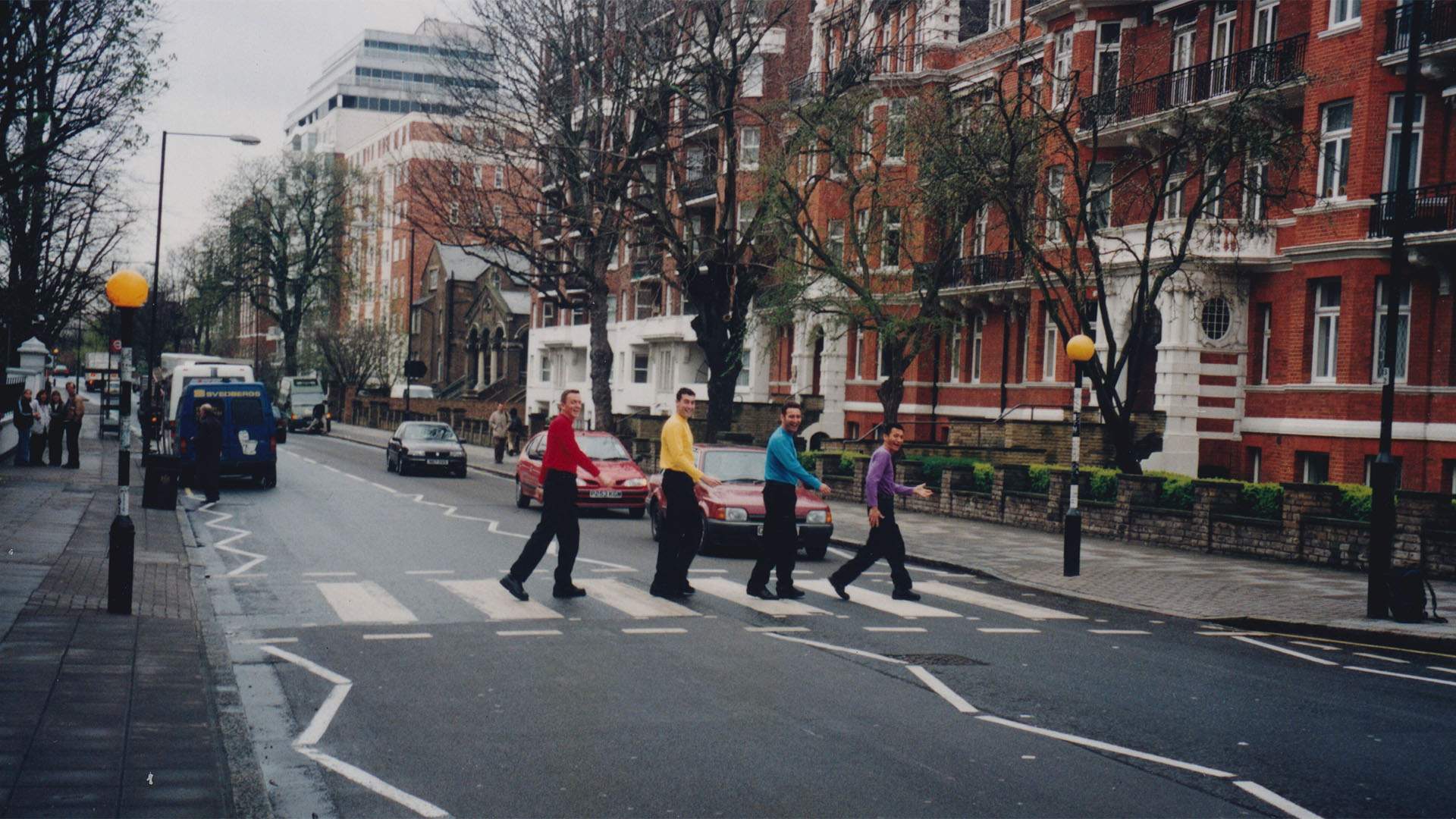How Four Skivvy-Wearing Friends Started a Phenomenon: The OG Wiggles Chat 'Hot Potato: The Story of The Wiggles'
After decades of success, winning Triple J’s Hottest 100 and earning Lil Nas X’s love, The Wiggles have scored their own documentary — and Anthony Field, Jeff Fatt, Greg Page and Murray Cook told us all about it.
For every Australian that was a toddler from the 90s onwards, and their counterparts worldwide as well, heroes wear blue, yellow, red and purple skivvies. Since the early 90s, The Wiggles have been one of the biggest Aussie names in children's entertainment, and one of the country's most-successful global hits. Alongside Bananas in Pyjamas and Bluey, they're part of a trio of homegrown icons in pop culture's early-childhood space, all thanks to the decision by Anthony Field, Jeff Fatt, Greg Page and Murray Cook to turn their university studies in the area, plus their experience in music — Field and Fatt were part of The Cockroaches, while Page was in Dead Giveaway and Cook in Bang Shang a Lang — into an album for kids.
The rest is history, which The Wiggles just keep making. In Triple J's Hottest 100 of 2021, three decades after the group's self-titled debut album, they topped the poll with a cover of Tame Impala's 'Elephant'. Also among the troupe's recent achievements and highlights: appearing at the Mardi Gras parade, playing Falls Festival, earning some love from Lil Nas X and bringing the OGs back together for adults-only shows. Premiering at the first-ever SXSW Sydney, documentary Hot Potato: The Story of The Wiggles — which is now streaming via Prime Video — has joined their resume as well.
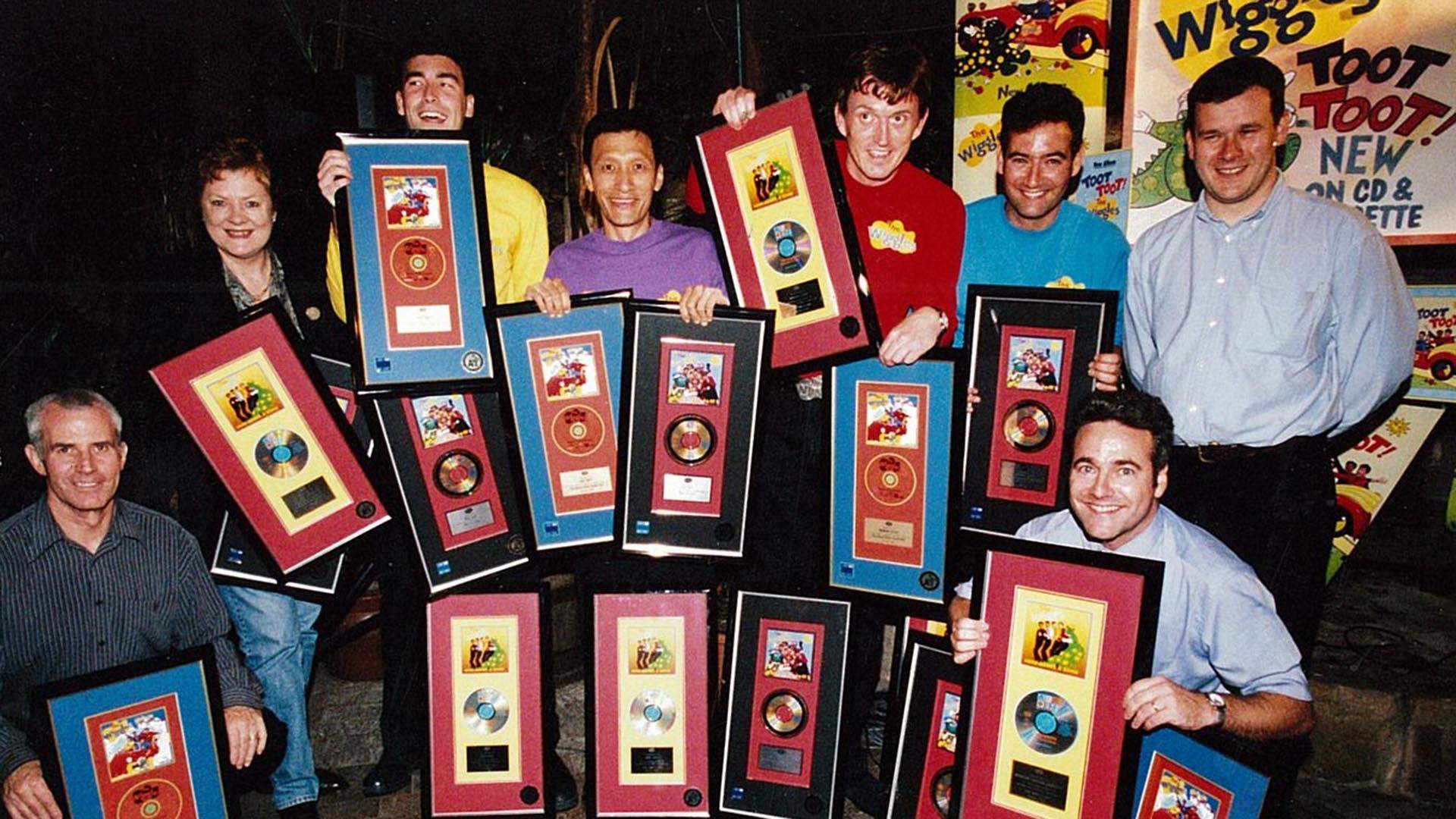
Onstage for today's toddlers — plus every batch of preschoolers since 'Get Ready to Wiggle' and 'Dorothy the Dinosaur' first started echoing — The Wiggles serve up business as usual. Whether playing at home or around the world, the Aussie entertainers put on a child-pleasing live show. Other than Field, the folks donning the skivvies have changed, with the troupe becoming bigger, more culturally diverse and championing gender balance. At gigs specifically focused at 90s and 00s kids who are now well past The Wiggles' prime demographic, Field, Fatt, Page and Cook have reformed for reunion tours. As seen in Hot Potato: The Story of The Wiggles, both types of concerts draw huge crowds.
For Field, Fatt, Page and Cook, life has been shaped by wearing bright colours, singing to fans young and older alike, and getting 'Hot Potato' and 'Fruit Salad' lodged in everyone's brains — and lives have been moulded by their efforts in turn. Early-childhood teaching philosophies have always sat at the forefront of The Wiggles, which the OG four attribute to their success. Young devotees who dance along to their tunes then become adults who still think fondly about their first-ever favourite group.
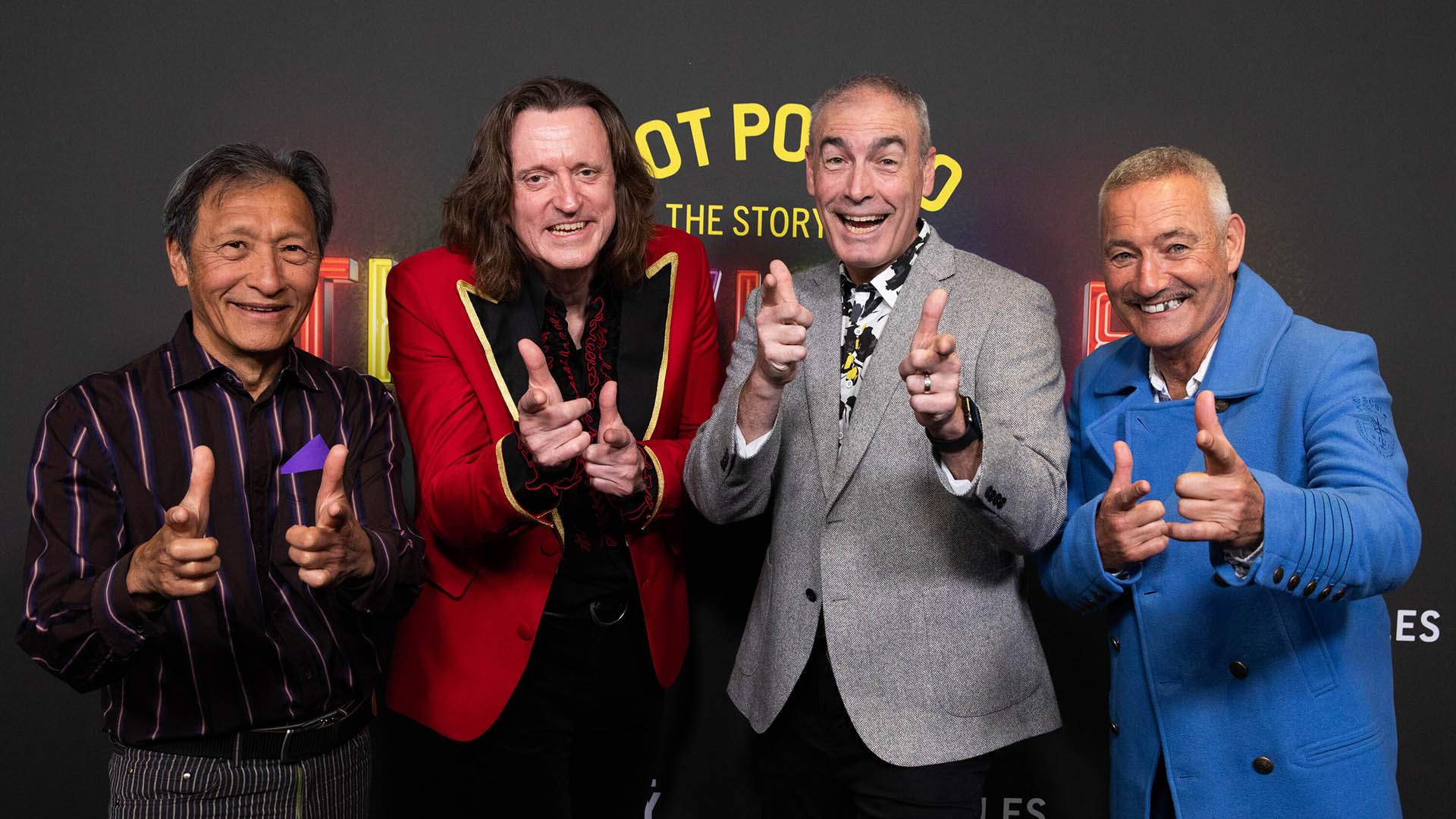
Hot Potato: The Story of the Wiggles clearly has much to cover, then, all within a 104-minute doco that does much more than trade in nostalgia: as directed by Valerie Taylor: Playing with Sharks and David Stratton: A Cinematic Life filmmaker Sally Aitken, it chronicles how four friends started a phenomenon that's taken them everywhere from small Aussie shows to Madison Square Garden, and sparked a beloved group that shows no signs of stopping.
With the movie now delighting audiences, Field, Fatt, Page and Cook spoke to Concrete Playground about all things Wiggles, including reflecting upon their careers via the doco, the whirlwind last few years for the OGs and why they're so beloved.
And if you're wondering if Fatt, Page and Cook wear skivvies or their famous colours now, Page bought yellow sneakers just for the film's premiere "to have something yellow in my wardrobe", Fatt says he "definitely avoids the purple" and Cook does "have some skivvies though, but they're black".

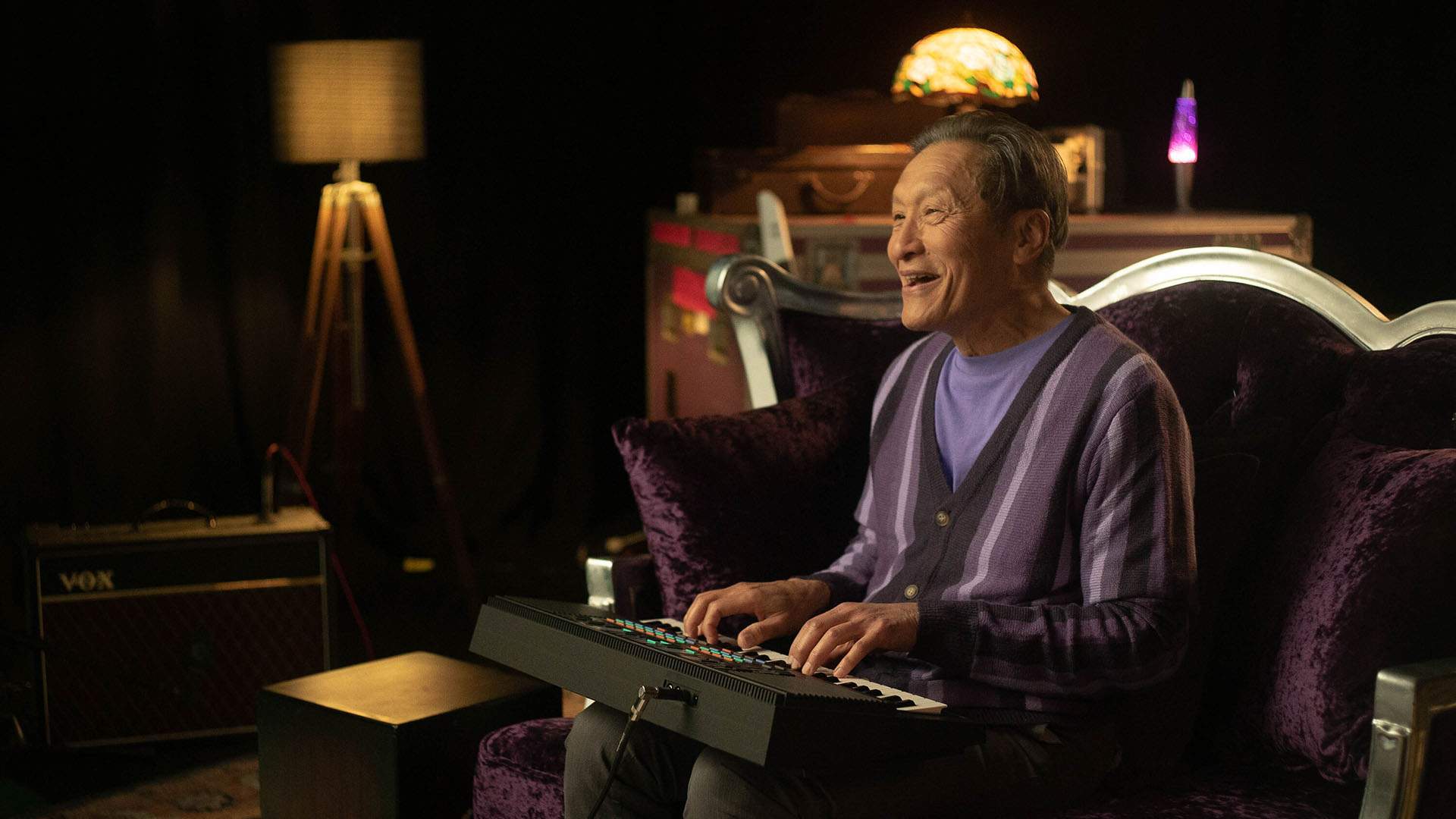
ON THEIR RESPONSE TO A DOCUMENTARY BEING MADE ABOUT THE WIGGLES
Anthony: "This New Zealand company approached us about doing it. So they were filming us for the last couple of years and being with us, and then got all this archival footage, and got fans to send in a whole lot of stuff — and just got all these incredible photos right through our career.
We were all a step away from the actual creatives of it, and the storytelling. It was pretty well Sally [Aitken] and Fraser [associate director Fraser Grut] with the guys in New Zealand who put it together.
But I was a bit scared to see it. I found it very emotional and beautiful — and sad and happy, all that stuff. A lot of great memories."
Murray: "When someone's going to make a documentary about you, you're not involved in the decision-making. There's a bit of trust involved and you just hope that they do the right thing. But once we met the filmmakers, Fraser and Sally, we got to know them a bit, and I felt very trusting that they'd tell the story honestly. You don't want to whitewash — you just want the the truth to be told, I think."
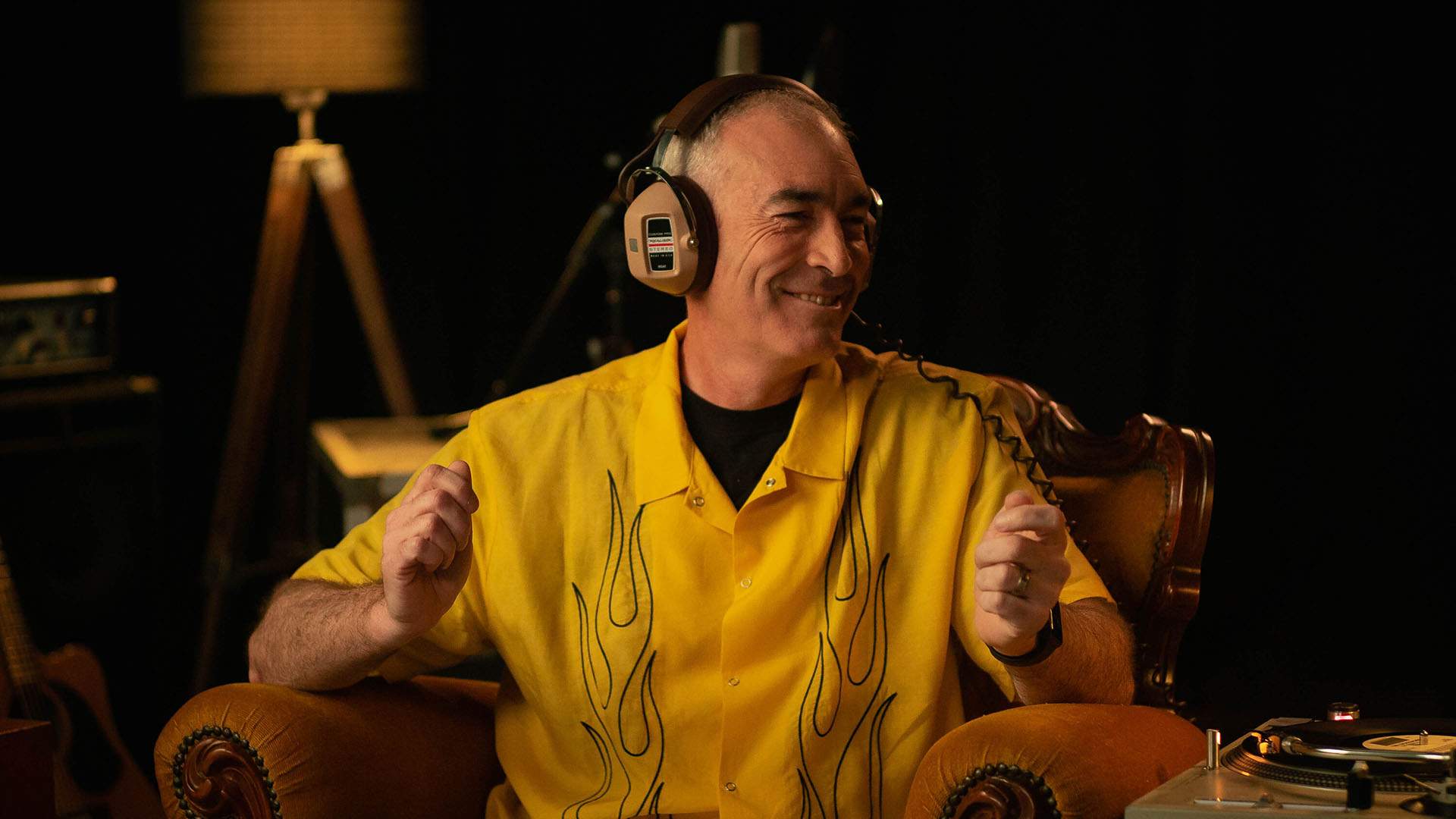
Jeff: "And Fraser grew up with The Wiggles. So, he held us in very high esteem."
Greg: "I think, too, that because he did, because he was a fan as a child, he got the essence of what the documentary is, and that is showing that connection between us and the children, and that connection that continues on today with the new Wiggles. I think that really sums it up beautifully.
And I think the overall tone of the picture is one — can you believe I said picture, like moving picture? — the tone of the documentary is one of joy and happiness. Really, that's what it's about. And I think he's done a great job, and so has Sally."

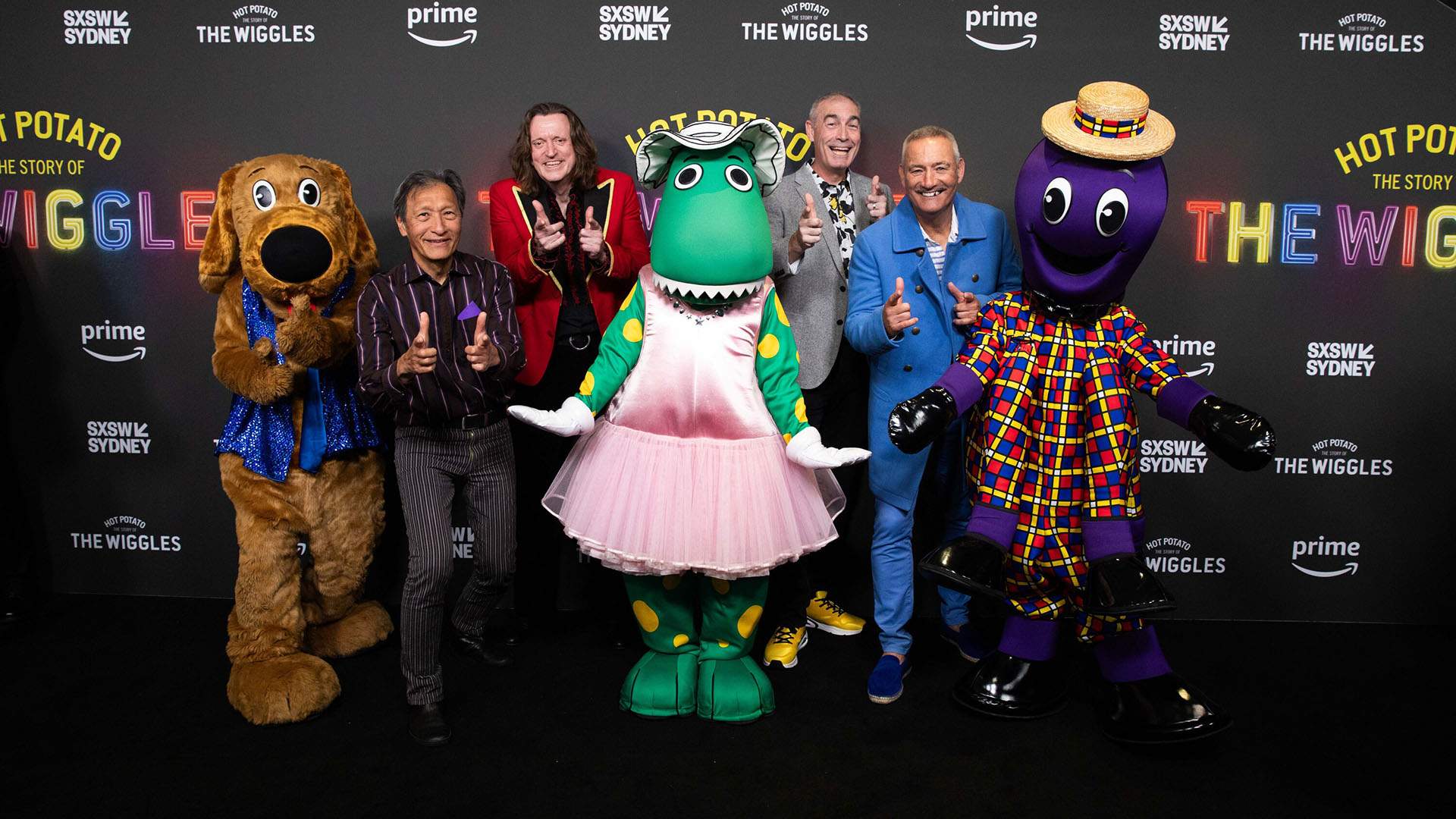
ON REFLECTING ON THEIR CAREERS VIA THE FILM
Greg: "It must have been such a challenge to try and cram 30 years into probably 100 minutes or so. But they've done a really good job at capturing those high points and the low points along the way — the milestone moments of The Wiggles.
To sit there and watch it back for us, I know personally it was really interesting because living it from the inside, you see it very differently to how other people have seen it. But then to step outside of that now and watch it in a different perspective, it's really quite fascinating."
Anthony: "You see little bits on YouTube of things we did 15 years ago, but this was like a line of just what happened. And just at the end of it, I was overwhelmed by it all."
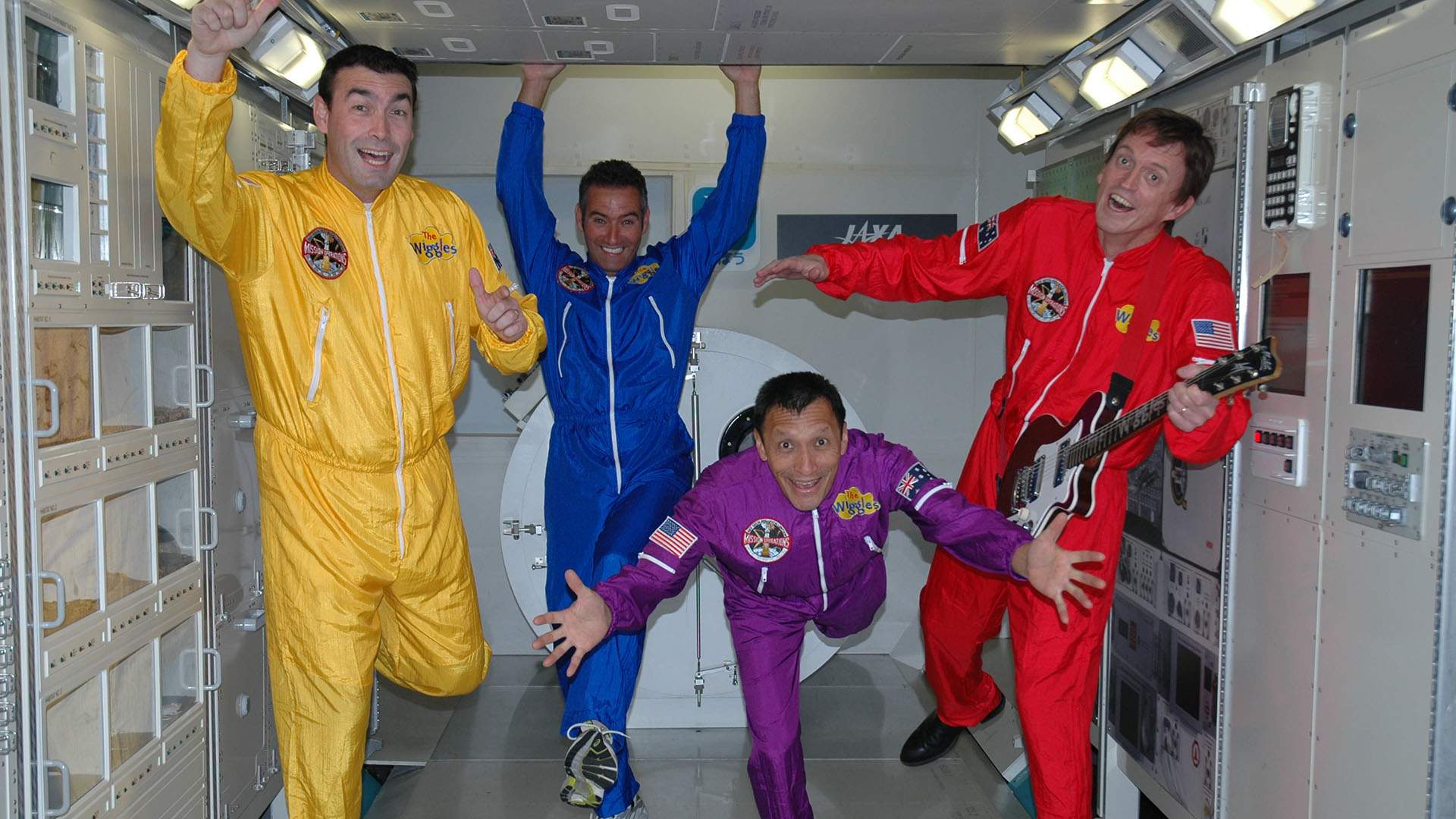
Murray: "I thought it was quite moving at at times. There was a lot of joy there, but there were a few tears. It does give you an opportunity to reflect on what it was that we achieved and what we created.
I think it's really great for the world to see the people behind The Wiggles — that it's not just four goofballs, although we are that — but that there's theory and philosophy behind it. But also just seeing the journey that we went on together, it was really lovely to be able to see that."
Greg: "It's interesting because when people ask us questions like they did in the documentary, they're asking questions that we probably never asked each other. And a lot of things we kind of took for granted that we're on the same page about, or we just felt that we would all feel the same way about, but I think there were some differences — not major differences at all.
It's kind of funny, like we never sat around and shared a lot about our own feelings about things. A lot of the time, we were talking about the show, the production that we were going to do, there was a lot of that stuff. So I think for me it was really a chance to hear the other guys' perspective on what The Wiggles was to them."

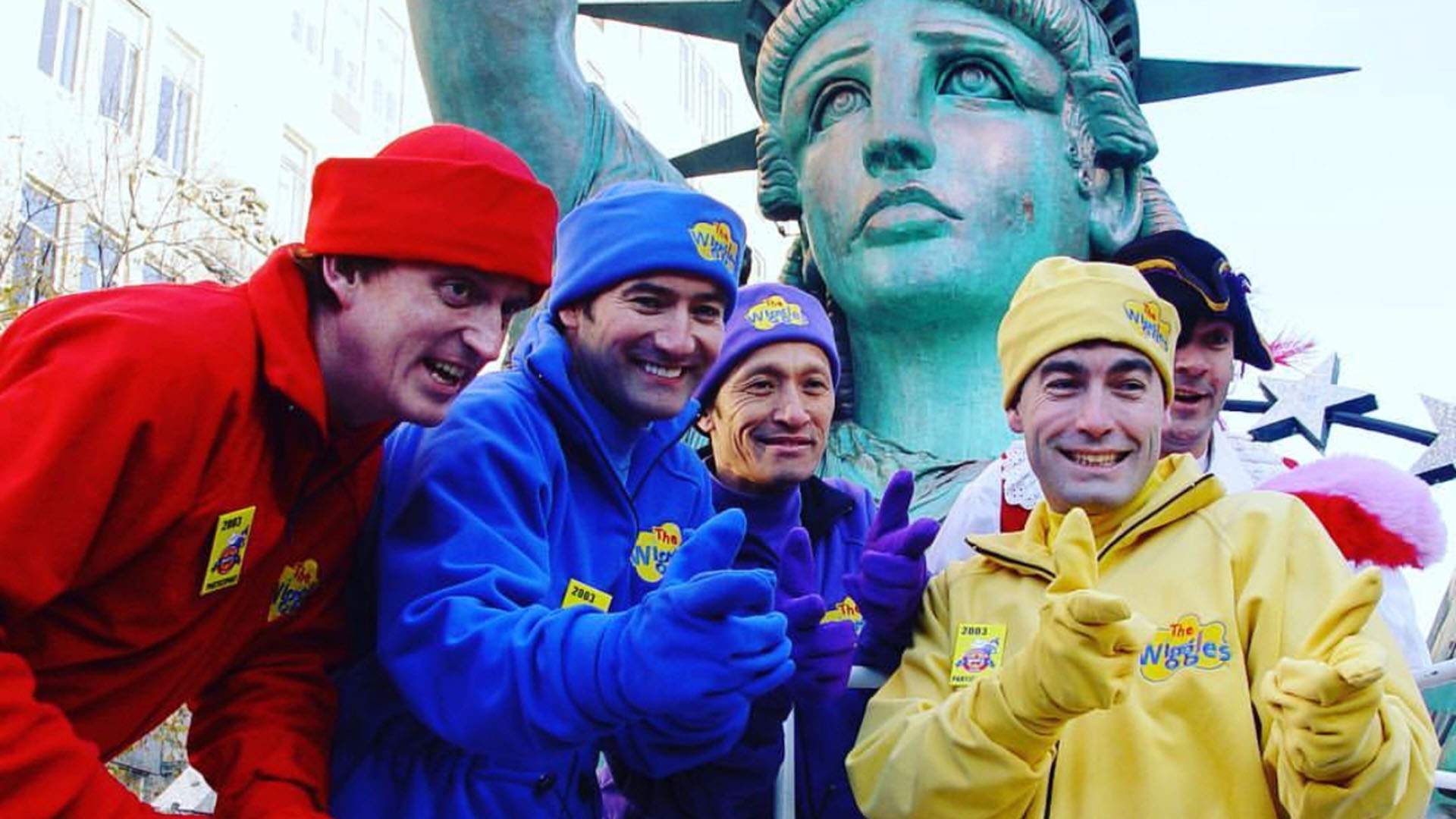
ON REALISING THAT THE WIGGLES WERE BECOMING A PHENOMENON
Anthony: "In Australia, we went from birthday parties to playing fundraisers for the Nursing Mothers Association, which was really good. They'd sell the tickets and get a percentage of the tickets, they were fundraisers for them and it was great because, basically, it just was word of mouth. The Wiggles in those days, we weren't on television and we weren't on the radio.
But the big step up in America, when I knew that things had changed, was when we went over and the people in customs recognised us — not in a bad way. That's when I went 'things have changed here'.
It was because Disney took our TV series and put it on four times a day on their channel. And we became massive in America and Canada, and it was amazing."
Murray: "I don't think we thought it would go around the world until we actually spent a bit of time in America. For us in the 2000s, from about 2002 on, America was a fairly big focus because it was very successful there.
Once we started doing things like playing Madison Square Garden and doing the Macy's Thanksgiving Day parade, it became a little bit surreal, for me anyway. We'd be sitting on buses going to these cities in America that in a lot of cases we've heard of but never been to, and it was a great adventure but it was also a little bit hard to get your head around."
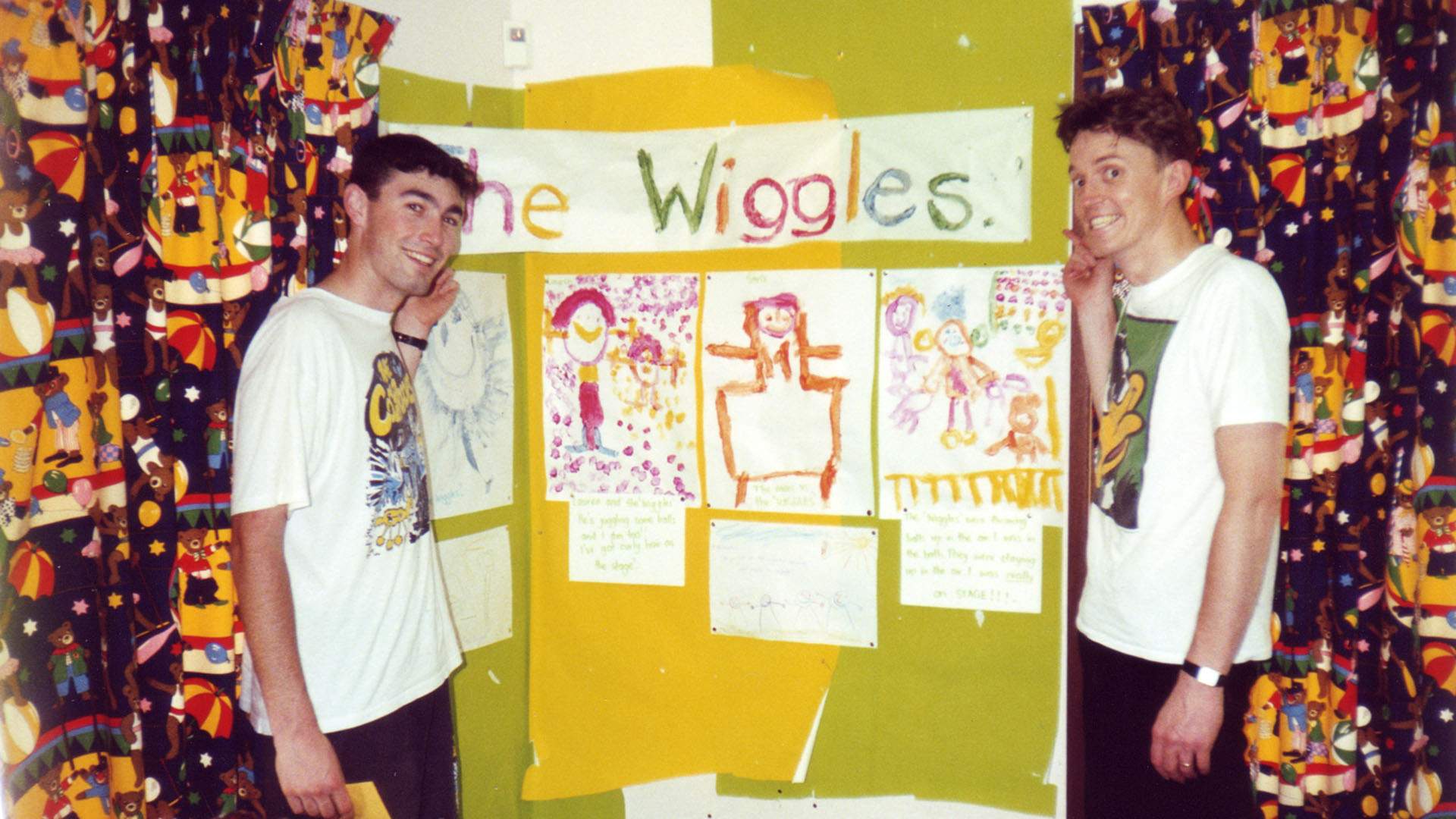
Jeff: "From the early days, for example, when we put out the first video and it really made a connection with our audience — and just little steps like that. We'd quite often play for the Nursing Mothers Association in little halls, and that started getting traction.
So the audience was continually building in those regional areas and in the city. So there were these little steps along the way, so it wasn't like a huge leap — it was a very gradual thing for us."
Greg: "I think, too, it's interesting that people use words like 'global phenomenon' or 'global empire'. For us, it was never about that. It was just about being able to do something that we loved and do it well. And for that reason, every time we had a little bit of success, it felt like we had achieved so much more than what we ever set out to do. And every step along the way, it just kept building and building.
So on reflection, I think that was probably the biggest thing about the doco — to sit back and watch those milestone moments be played back. It's like 'well, god, I can't believe we did that because we never set out to do it' — it was just all these happy bonuses that came along.
We've had a a blessed time and I think, I hope, that people take away from the doco the fact that when you do something in life that you really enjoy, if it brings joy to other people and that joy is something that's shared both ways, and if everybody's life can be filled with joy, then it's a really great thing."

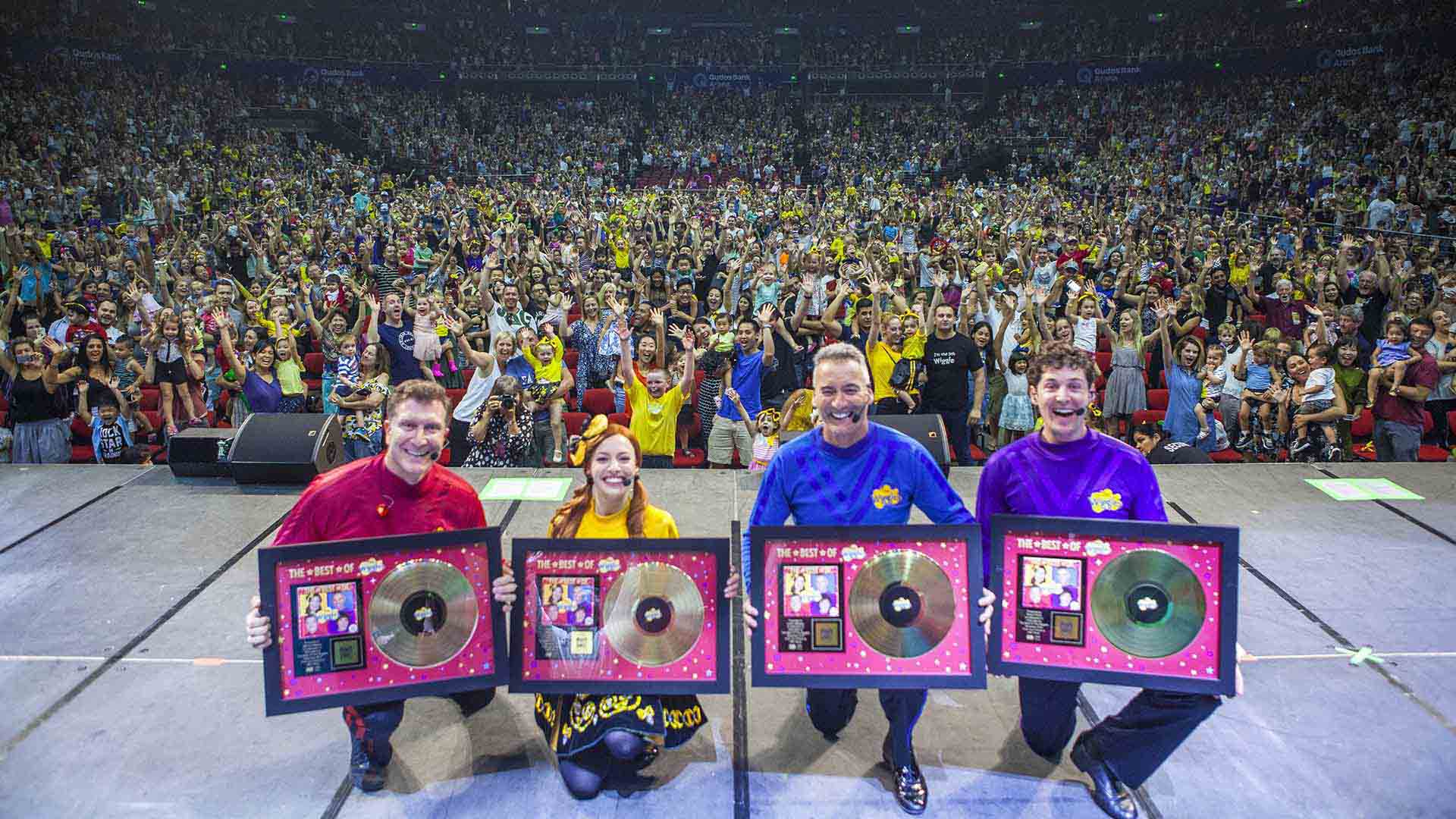
ON THE WIGGLES' ONGOING SUCCESS
Murray: "I think that what made The Wiggles successful in the first place is a few things. One of them is that we had this philosophy that was being child-centred, which is a philosophy from early-childhood education where you put the child first and you think about where they're at in terms of their development. We tried to use that in The Wiggles, I think quite successfully.
Also just things like we're pretty genuine about it. We're very genuine about what we're doing and what we're trying to achieve. And the songs are good, I think, and really connect with the audience.
What's happened after we moved on is that mostly Anthony's seen to it that those things are intact, that the philosophy's still there, that the way of speaking to the audience is still there, the songs are there. So I think that has carried on through the decades and kept The Wiggles in the forefront."
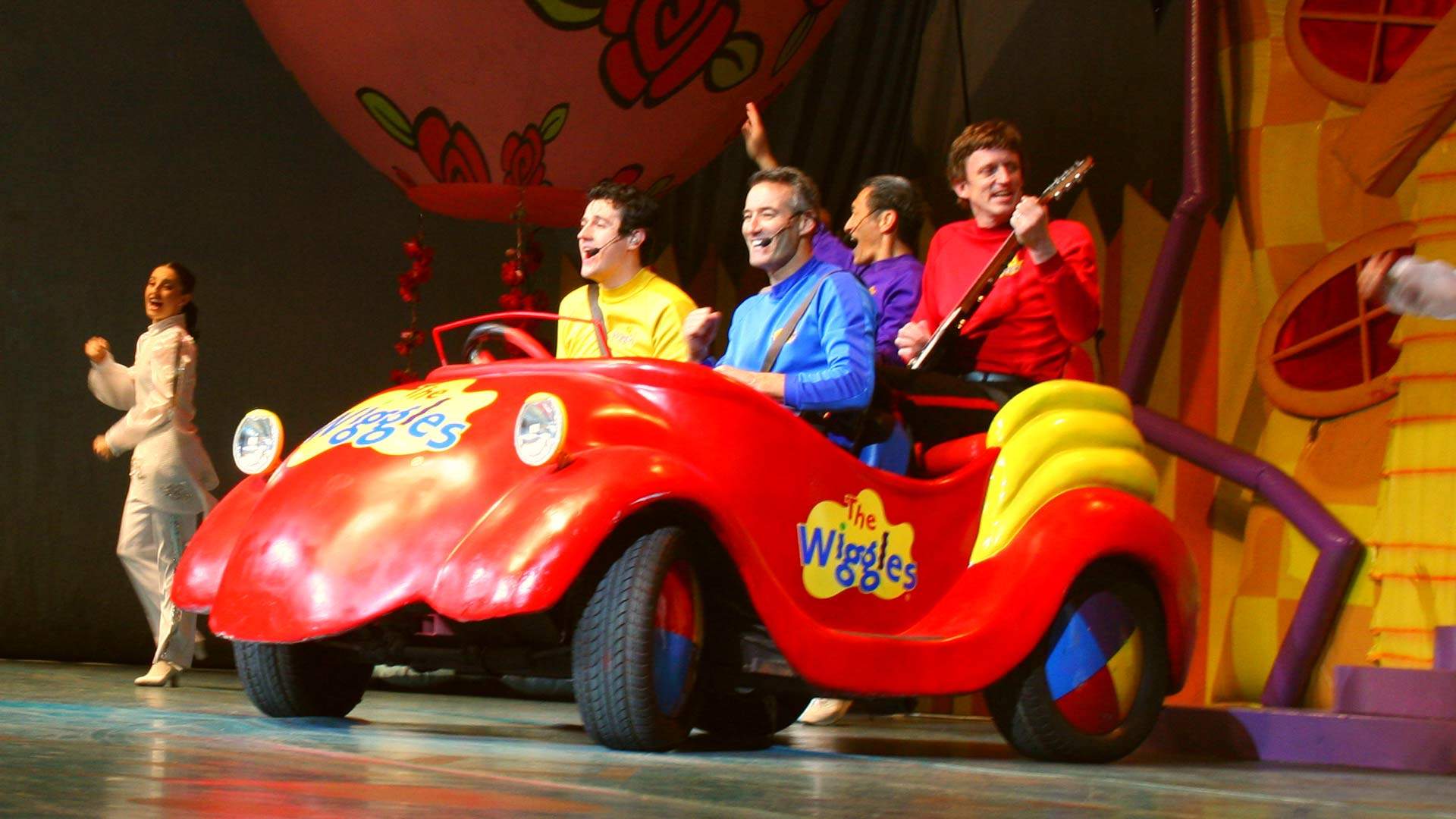
Anthony: "I think the bottom line for us is that we have to entertain, and keep children interested and educate them if we can. We're more about pro-social skills, and I think that we've kept the early-childhood philosophies at the forefront, and we haven't gotten too carried away with too many bells and whistles.
When we play a live show, we can go off the script at any time, as opposed to a lot of children's shows that are taped. We can, if a child calls out something, we can go with it.
That keeps it interesting for us as well. I think that for all those reasons we still love it. I love it still."

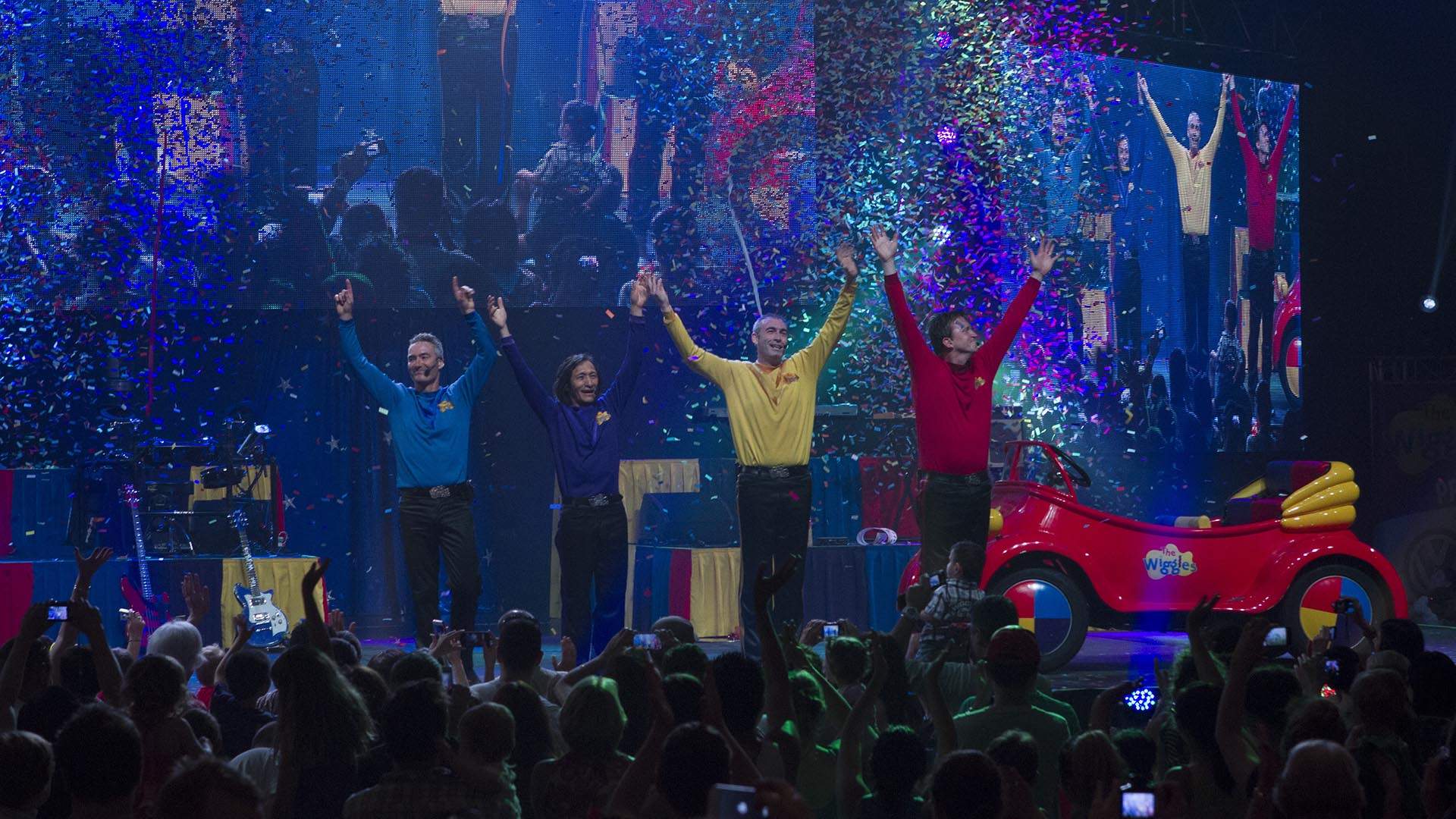
ON THE WIGGLES' TARGET DEMOGRAPHIC GROWING UP, BUT REMAINING WIGGLES FANS
Greg: "I think for those fans, it's the connection to their childhood, when they were young — hopefully carefree and innocent. It's a time of your life where, if you can connect to that inner child when you're in your 20s or 30s, it's something to celebrate.
And if The Wiggles are that connection for people, it's a great channel to be able to play music for them and come to our shows, and it's great for us too, actually."
Murray: "Oh it's fantastic."
Greg: "Because it connects us to that time of our lives as well, when we were doing something that we absolutely loved doing and very privileged to be a part of so many people's lives in a way where they did embrace us and they still do."
Jeff: "And for Australian fans, us topping the Triple J, Hot 100, that certainly boosted things with our older audience now."
Anthony: "We get told that it was a positive part of their childhood. And when those shows, when we do those adult shows, we don't change our show at all. I mean, pretty well, we're just the same — in the documentary, Paul Paddick, who plays Captain Feathersword, thought it was going to be a chance to swear on stage. And we said 'no, it's got to be exactly how it was or we're going to ruin what these people think about us'."

ON THE HOTTEST 100, LIL NAS X AND THE HIGHLIGHTS OF THE LAST FEW YEARS
Anthony: "It's been awesome. I'm still going with The Wiggles, so the eight Wiggles, and I'm loving that we've had Jeff come on stage, Murray come on stage, Greg come on stage with us — and it just proves that we're all part of the Wiggles family.
Lil Nas was amazing. He made a couple of fun tweets that he'd like to do a collaboration — I really did think it was tongue in cheek — but we did get to meet him at Falls. Falls Festival was just the best, and hanging out with Australian bands that are in their 20s that grew up with the Wiggles, it's just been great.
The Hottest 100 was surreal. And musically, it was great because I got to experience Tame Impala, who I knew nothing about — so it was educational for me."
We're ready to wiggle with you! 💛💜💙❤️
— The Wiggles (@TheWiggles) April 27, 2022
Murray: "It's funny that so much of what we've done over the years, like going to America, quite a lot of the things we've done have been uncharted. And we've always had this sense of doing things for the adventure of it — and I think this is again something that we never expected.
We never expected the initial success that we had, and we never expected that 30 years later we would be playing for those kids who grew up — and no one ever thought that we'd be on Triple J at all, let alone topping the Hottest 100.
So it's just wonderful. It's like some sort of icing on the cake, I guess, that we can still get together and have fun with our audience, but also to spend time with each other, and really go back and do this thing that we loved and this amazing thing we created together.
Jeff: "At the time we didn't even know who he [Lil Nas X] was. I was totally out of touch with all. But looking at it now, it's crazy."

Hot Potato: The Story of The Wiggles streams via Prime Video. Read our review.
